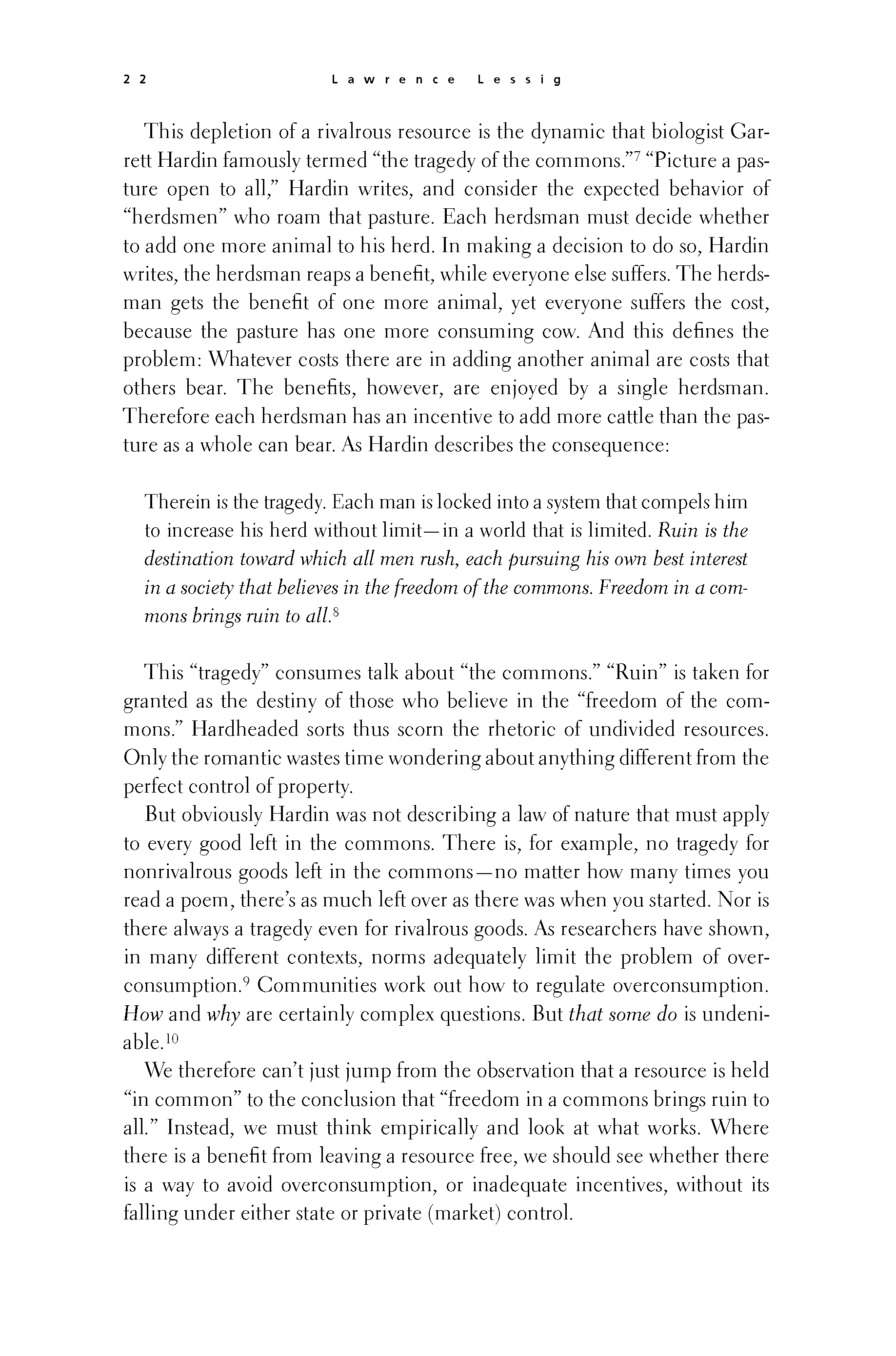 p021 _
-chap- _
toc-1 _
p022w _
toc-2 _
+chap+ _
p023
p021 _
-chap- _
toc-1 _
p022w _
toc-2 _
+chap+ _
p023
This depletion of a rivalrous resource is the dynamic that biologist Gar-
rett Hardin famously termed "the tragedy of the commons."[2-7] "Picture a pas-
ture open to all," Hardin writes, and consider the expected behavior of
"herdsmen" who roam that pasture. Each herdsman must decide whether
to add one more animal to his herd. In making a decision to do so, Hardin
writes, the herdsman reaps a benefit, while everyone else suffers. The herds-
man gets the benefit of one more animal, yet everyone suffers the cost,
because the pasture has one more consuming cow. And this defines the
problem: Whatever costs there are in adding another animal are costs that
others bear. The benefits, however, are enjoyed by a single herdsman.
Therefore each herdsman has an incentive to add more cattle than the pas-
ture as a whole can bear. As Hardin describes the consequence:
____ Therein is the tragedy. Each man is locked into a system that compels him
____ to increase his herd without limit -- in a world that is limited. _Ruin_is_the_
____ _destination_toward_which_all_men_rush,_each_pursuing_his_own_best_interest_
____ _in_a_society_that_believes_in_the_freedom_of_the_commons._Freedom_in_a_com-_
____ _mons_brings_ruin_to_all_.[2-8]
This "tragedy" consumes talk about "the commons." "Ruin" is taken for
granted as the destiny of those who believe in the "freedom of the com-
mons." Hardheaded sorts thus scorn the rhetoric of undivided resources.
Only the romantic wastes time wondering about anything different from the
perfect control of property.
But obviously Hardin was not describing a law of nature that must apply
to every good left in the commons. There is, for example, no tragedy for
nonrivalrous goods left in the commons -- no matter how many times you
read a poem, there's as much left over as there was when you started. Nor is
there always a tragedy even for rivalrous goods. As researchers have shown,
in many different contexts, norms adequately limit the problem of over-
consumption.[2-9] Communities work out how to regulate overconsumption.
_How_ and _why_ are certainly complex questions. But _that_some_do_ is undeni-
able.[2-10]
We therefore can't just jump from the observation that a resource is held
"in common" to the conclusion that "freedom in a commons brings ruin to
all_._" Instead, we must think empirically and look at what works. Where
there is a benefit from leaving a resource free, we should see whether there
is a way to avoid overconsumption, or inadequate incentives, without its
falling under either state or private (market) control.
[[22]]
p021 _
-chap- _
toc-1 _
p022w _
toc-2 _
+chap+ _
p023